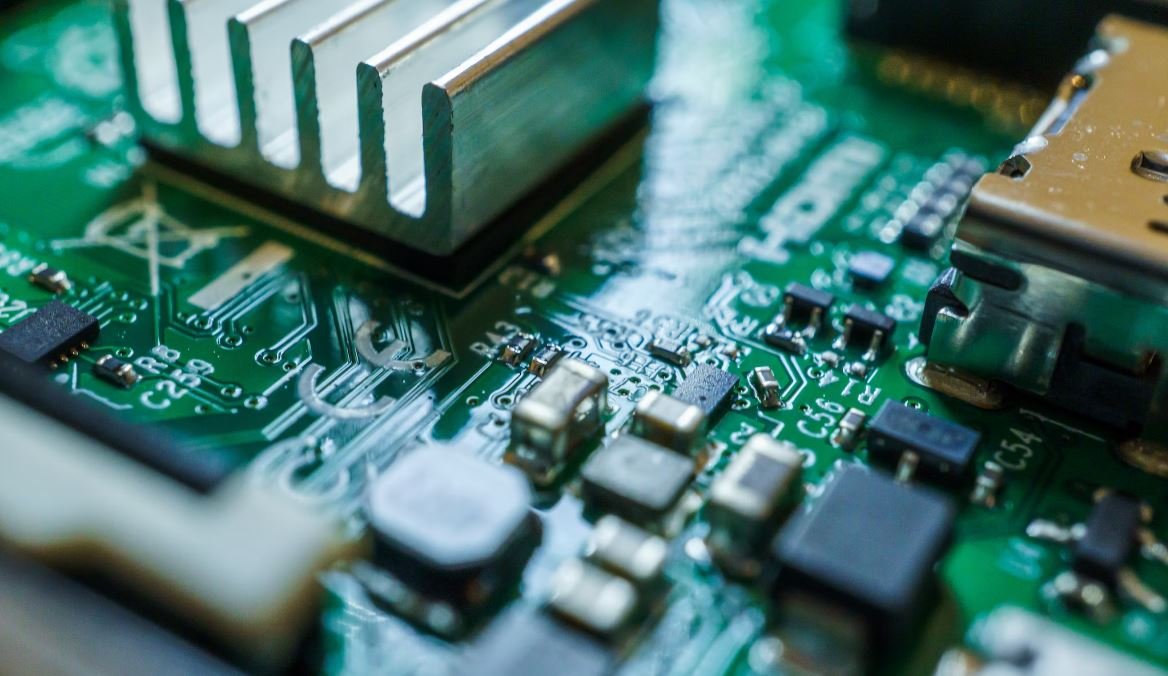Tesla Motors VRIO Analysis
Tesla Motors is a renowned electric vehicle (EV) manufacturer, known for its innovative technologies and sustainable approach. Conducting a VRIO analysis on Tesla can help us understand the company’s competitive advantages. VRIO stands for Value, Rarity, Imitability, and Organization, and it is a framework used to assess a firm’s resources and capabilities.
Key Takeaways
- Tesla Motors has unique and valuable resources that contribute to its competitive advantage.
- Some of Tesla’s resources are rare in the industry, giving the company an edge over its competitors.
- Certain resources and capabilities of Tesla are difficult to imitate, providing sustainability to its competitive advantage.
- The organization of Tesla plays a crucial role in leveraging its resources effectively.
The VRIO Analysis of Tesla Motors
Value: Tesla Motors possesses several resources and capabilities that create value for the company. Its cutting-edge battery technology and self-driving capabilities differentiate it from other EV manufacturers. *Tesla’s advanced battery technology has revolutionized the industry by enabling longer driving ranges and faster charging times.* This provides value to its customers, who have more confidence in the reliability and convenience of Tesla’s vehicles.
Rarity: Tesla’s resources and capabilities exhibit rarity in the industry. The company’s Gigafactories, which produce batteries at an unprecedented scale, are a rare asset. *These Gigafactories are strategically located worldwide and help Tesla meet the increasing demand for its EVs while minimizing manufacturing and shipping costs.* This rarity gives Tesla a competitive advantage in terms of cost efficiency and scalability.
Imitability: Tesla’s successful integration of its resources and capabilities makes it challenging for competitors to imitate. The company’s strong focus on research and development has allowed it to develop a strong patent portfolio. *Tesla’s patents cover various aspects of EV technology, making it difficult for competitors to replicate its innovations.* Additionally, Tesla’s brand reputation and customer loyalty are intangible assets that are not easy to replicate, further strengthening its competitive advantage.
| Resources/Capabilities | Value | Rarity | Imitability | Organization |
|---|---|---|---|---|
| Cutting-edge battery technology | ✓ | ✓ | ✓ | ✓ |
| Gigafactories | ✓ | ✓ | ✓ | ✓ |
| Patents | ✓ | ✓ | ✓ | ✓ |
| Brand reputation | ✓ | ✓ | ✓ | ✓ |
Organization: Tesla’s organizational structure and management practices contribute to making its resources and capabilities highly effective. *The company’s CEO, Elon Musk, has played a significant role in fostering a culture of innovation and risk-taking within Tesla.* The organization encourages employees to think outside the box and embrace disruptive ideas, which fuels continuous innovation.
Summary of Tesla’s VRIO Analysis
Tesla Motors possesses unique and valuable resources that are difficult to imitate, providing the company with a sustainable competitive advantage. Its cutting-edge battery technology, rare Gigafactories, extensive patent portfolio, and strong brand reputation are key components of its success. Furthermore, Tesla’s organization and management practices enhance the effectiveness of its resources and capabilities.
By conducting a VRIO analysis, it becomes evident that Tesla Motors has a strong foundation for continued growth and market dominance in the electric vehicle industry.
| Competitive Advantages | Description |
|---|---|
| Innovative battery technology | Tesla’s advanced battery technology provides longer ranges and faster charging times. |
| Global Gigafactories | Tesla’s strategically located Gigafactories enable efficient production and cost savings. |
| Strong patent portfolio | Tesla’s extensive patents protect its innovations and make imitation difficult. |
| Brand reputation and customer loyalty | Tesla’s strong brand reputation and loyal customer base give the company a competitive edge. |
Building on these competitive advantages, Tesla Motors continues to push the boundaries of EV technology, sustainability, and innovation in the automotive industry.

Common Misconceptions
Misconception #1: Tesla Motors is primarily an electric car company
One common misconception about Tesla Motors is that it is solely focused on producing electric cars. While it is true that Tesla is known for its groundbreaking electric vehicles, the company’s scope extends beyond just cars. In fact, Tesla also develops and manufactures energy storage products, such as batteries for homes and businesses. Additionally, Tesla is involved in the production of renewable energy generation and storage solutions. This broader focus positions Tesla as a leading player in the sustainable energy industry.
- Tesla Motors produces not only electric cars but also energy storage products.
- Tesla is involved in renewable energy generation and storage solutions.
- Tesla’s scope extends beyond cars to include sustainable energy initiatives.
Misconception #2: Tesla Motors relies heavily on government subsidies
Another common misconception is that Tesla Motors heavily relies on government subsidies to sustain its operations. While it is true that Tesla has benefited from government incentives for electric vehicles in various countries, it is important to note that government support is not the sole driver of Tesla’s success. The company has invested heavily in research and development, innovation, and building a strong brand. Tesla’s ability to manufacture high-quality electric cars at scale, coupled with its strategic partnerships and relentless focus on customer experience, has played a significant role in its growth and profitability.
- Tesla has invested heavily in research and development and building a strong brand.
- Tesla’s success is not solely dependent on government subsidies.
- Tesla’s ability to manufacture high-quality electric cars at scale contributes to its success.
Misconception #3: Tesla Motors is a luxury car brand
Many people assume that Tesla Motors exclusively caters to the luxury car market. While it is true that Tesla’s earlier models, such as the Roadster and Model S, were positioned as luxury vehicles, the company has expanded its product lineup to include more affordable options. The introduction of the Model 3, which is targeted at the mid-range market, showcases Tesla’s commitment to making electric cars accessible to a wider audience. In fact, Tesla’s goal is to accelerate the advent of sustainable transportation by producing high-performance electric vehicles that are not only luxurious but also affordable.
- Tesla offers more affordable options in addition to luxury vehicles.
- The introduction of the Model 3 demonstrates Tesla’s commitment to accessibility.
- Tesla aims to produce high-performance vehicles that are both luxurious and affordable.
Misconception #4: Tesla Motors’ success is solely due to its CEO, Elon Musk
Elon Musk, the charismatic CEO of Tesla Motors, has undoubtedly played a crucial role in the company’s success. However, it is a misconception to attribute Tesla’s achievements solely to Musk. Tesla’s success is a result of a collective effort involving a team of talented engineers, designers, and business professionals. Musk’s leadership and vision have undoubtedly been instrumental in shaping Tesla’s direction, but it is the collaborative efforts of the entire organization that have propelled the company to where it stands today.
- Tesla’s success is not solely dependent on Elon Musk.
- It is a collective effort involving a team of talented professionals.
- Musk’s leadership has been instrumental, but the organization as a whole contributes to success.
Misconception #5: Tesla Motors’ market presence is only limited to the United States
While Tesla Motors is an American company founded and headquartered in the United States, it is mistaken to think that its market presence is limited to the U.S. In fact, Tesla has established a strong global presence and sells its electric vehicles in numerous countries around the world. With an expanding network of Supercharger stations and strategically located stores, Tesla is actively expanding its reach and making its products accessible to customers worldwide. The company’s international expansion demonstrates its ambition to revolutionize transportation on a global scale.
- Tesla has a strong global presence, not solely limited to the United States.
- Tesla sells its electric vehicles in numerous countries around the world.
- With an expanding network of Supercharger stations, Tesla is actively expanding its reach globally.

Introduction
Hello and welcome to the VRIO Analysis of Tesla Motors. In this article, we will be examining the internal factors that contribute to Tesla’s success as a leading electric vehicle manufacturer. The VRIO framework evaluates a firm’s resources and capabilities in terms of their value, rarity, inimitability, and organization. Through this analysis, we aim to understand how Tesla maintains its competitive advantage in the industry.
Vertically Integrated Supply Chain
Tesla’s vertically integrated supply chain allows them more control over production and quality assurance. By owning their manufacturing plants and battery production facilities, Tesla reduces the risk of supply chain disruptions and ensures a consistent product output.
Rare and Innovative Battery Technology
Tesla’s investment in battery technology, exemplified by their Gigafactory, sets them apart in the industry. Their proprietary battery technology not only offers longer ranges and faster charging times but also contributes to their brand differentiation and helps them stay ahead of the competition.
Strong Brand Image and Customer Loyalty
Tesla’s strong brand image and loyal customer base have positioned them as a leader in the electric vehicle market. With a focus on sustainability and cutting-edge technology, Tesla has successfully created a brand that resonates with environmentally conscious consumers.
Expansive Supercharger Network
Tesla’s extensive Supercharger network gives them a competitive advantage by overcoming one of the main challenges faced by electric vehicle owners – range anxiety. With over 2,000 Supercharger stations globally, Tesla drivers can confidently travel long distances without worrying about running out of battery.
Advanced Autopilot and Full Self-Driving Capability
Tesla’s advanced Autopilot system and ongoing development in full self-driving technology demonstrate their commitment to innovation. By integrating cutting-edge hardware and software, Tesla is at the forefront of autonomous driving technology, further enhancing their brand reputation.
Efficient Distribution and Sales Model
Tesla’s direct-to-consumer sales model allows them to bypass traditional dealership networks, reducing costs and maintaining control over the customer experience. This approach enables quicker decision-making, personalized customer service, and increased brand advocacy.
Skilled and Talented Workforce
Tesla’s commitment to hiring skilled and talented individuals contributes to their competitive advantage. Ranging from engineers to designers to sales professionals, Tesla’s workforce has a deep understanding of electric vehicles’ nuances, ensuring a high-quality product and excellent customer support.
Strong Financial Performance
Tesla’s consistent profitability and substantial revenue growth demonstrate their financial strength. This enables them to invest in research and development, expand their production capacity, and maintain their competitive position in the market.
Commitment to Sustainability
Tesla’s commitment to environmental sustainability aligns with the growing trend towards greener transportation. By offering electric vehicles as an alternative to traditional gasoline-powered cars, Tesla contributes to reducing carbon emissions and promoting a more sustainable future.
Conclusion
Tesla Motors’ VRIO analysis highlights numerous factors contributing to their success in the electric vehicle industry. From their vertically integrated supply chain and innovative battery technology to their strong brand image and customer loyalty, Tesla continues to lead the way in terms of technological advancements and sustainable transportation solutions. With a focus on continuous innovation and a commitment to excellence, Tesla has positioned itself as a key player in the industry and remains well-positioned for future success.
Tesla Motors VRIO Analysis – Frequently Asked Questions
What is a VRIO analysis?
A VRIO analysis is a strategic framework used to evaluate the resources and capabilities of a company to determine their strategic value and competitive advantage.
How does a VRIO analysis benefit Tesla Motors?
A VRIO analysis helps Tesla Motors identify their unique resources and capabilities that provide a competitive advantage in the electric vehicle market. This analysis helps Tesla focus on leveraging their strengths and addressing potential weaknesses.
What are the main components of a VRIO analysis?
A VRIO analysis consists of four main components: valuable resources, rare resources, inimitable resources, and organization response. These components help assess the competitive advantage of a company’s resources and capabilities.
What are some valuable resources of Tesla Motors?
Tesla Motors possesses valuable resources such as their electric vehicle technology, strong brand reputation, innovative battery technology, and extensive Supercharger network.
What are rare resources for Tesla Motors?
Tesla Motors possesses rare resources including their ownership of the Gigafactory, access to a vertically integrated supply chain, and their talented pool of engineers and designers.
What are inimitable resources in the context of Tesla Motors?
Inimitable resources of Tesla Motors include their extensive data collection and analysis capabilities, strong intellectual property portfolio, and their unique approach to vehicle design and manufacturing.
How does Tesla Motors respond to market changes?
Tesla Motors is known for its adaptive and proactive response to market changes. They continually invest in research and development, embrace new technologies, and maintain close customer relationships to stay ahead of the competition.
What are some potential weaknesses in Tesla Motors’ VRIO analysis?
Potential weaknesses in Tesla Motors’ VRIO analysis may include limited production capacity, high production costs, reliance on a single supplier for key components, and regulatory challenges in different markets.
How can Tesla Motors leverage their VRIO analysis for growth?
Tesla Motors can leverage their VRIO analysis by focusing on enhancing and strengthening their valuable, rare, inimitable, and organization response resources. By doing so, they can continue to gain a competitive advantage, expand their market share, and drive growth in the electric vehicle industry.
What are some possible threats to Tesla Motors’ VRIO analysis?
Possible threats to Tesla Motors’ VRIO analysis may include increasing competition from traditional automakers entering the electric vehicle market, evolving government regulations, and potential disruptions in the supply chain for key components.
How frequently should Tesla Motors conduct a VRIO analysis?
Tesla Motors should conduct a VRIO analysis periodically, ideally every one to two years, to reassess their resources and capabilities in relation to the competitive landscape and changing market dynamics.




